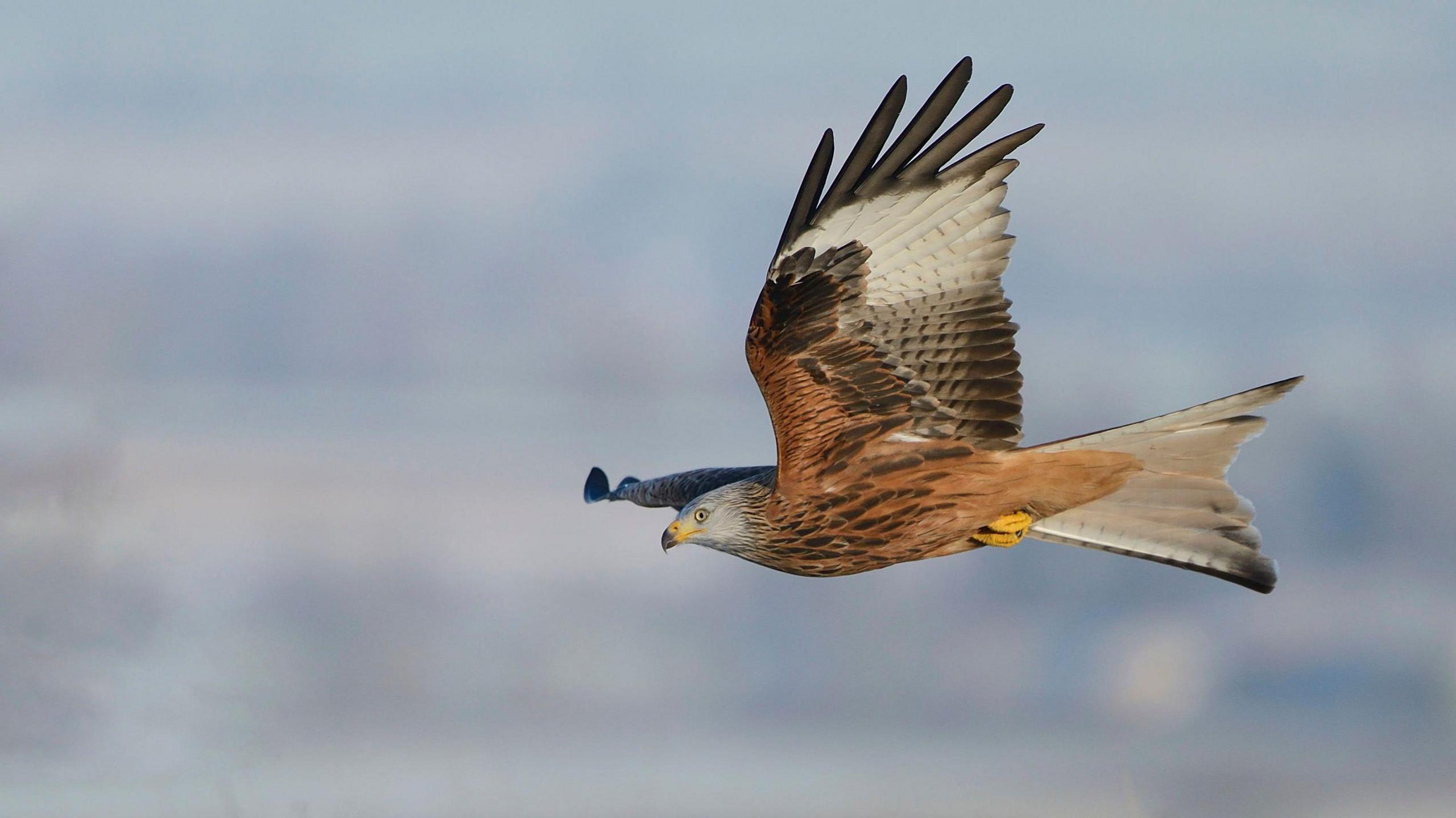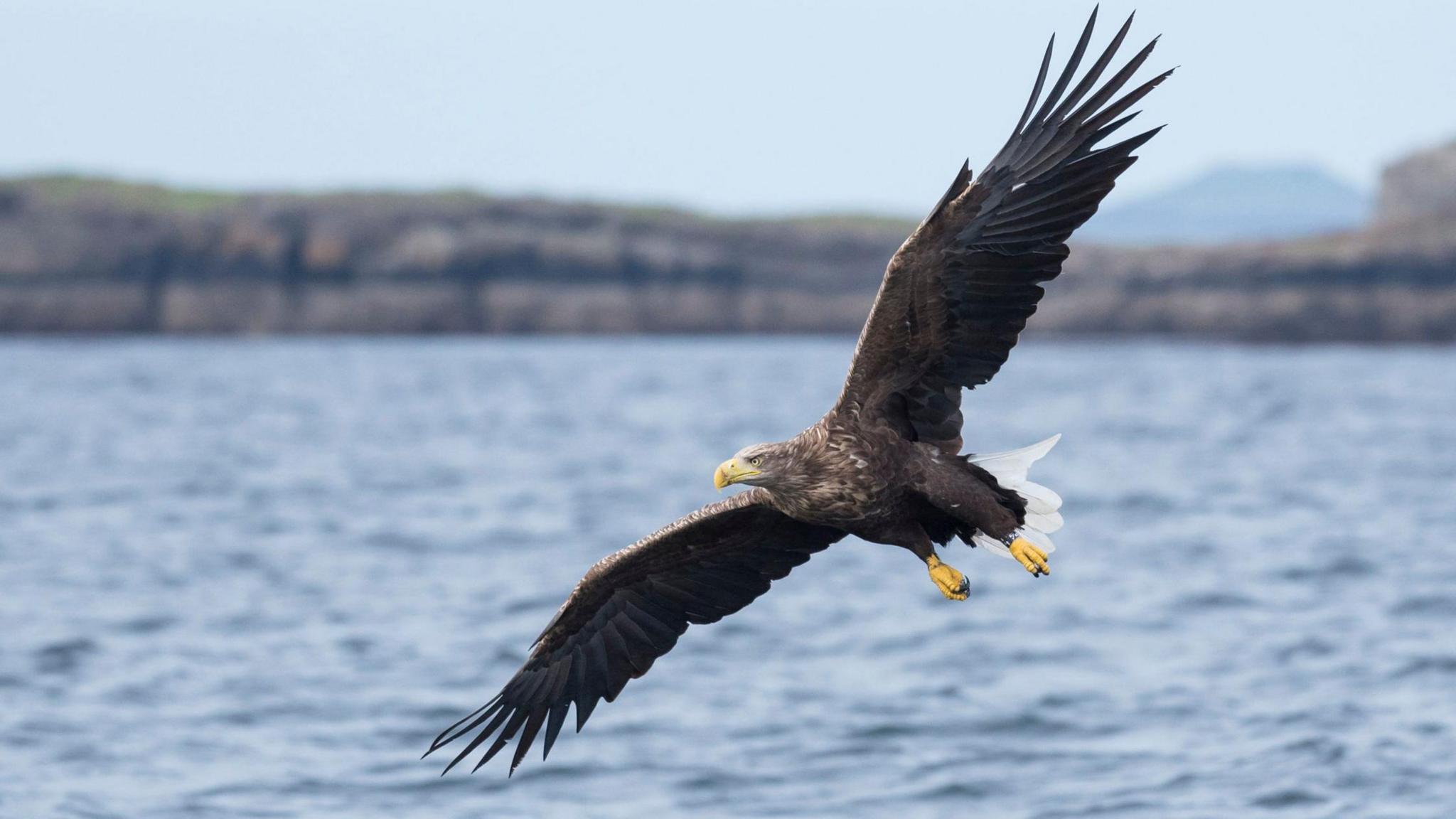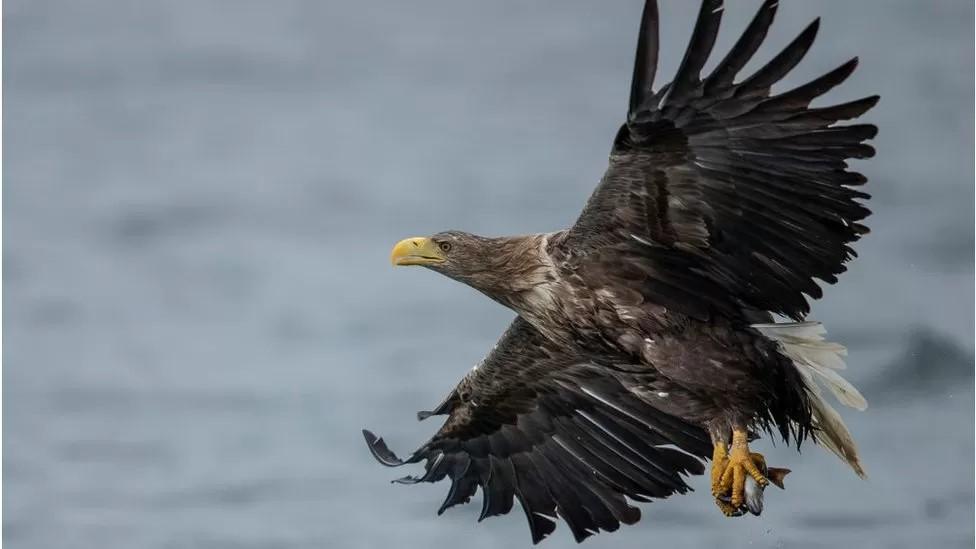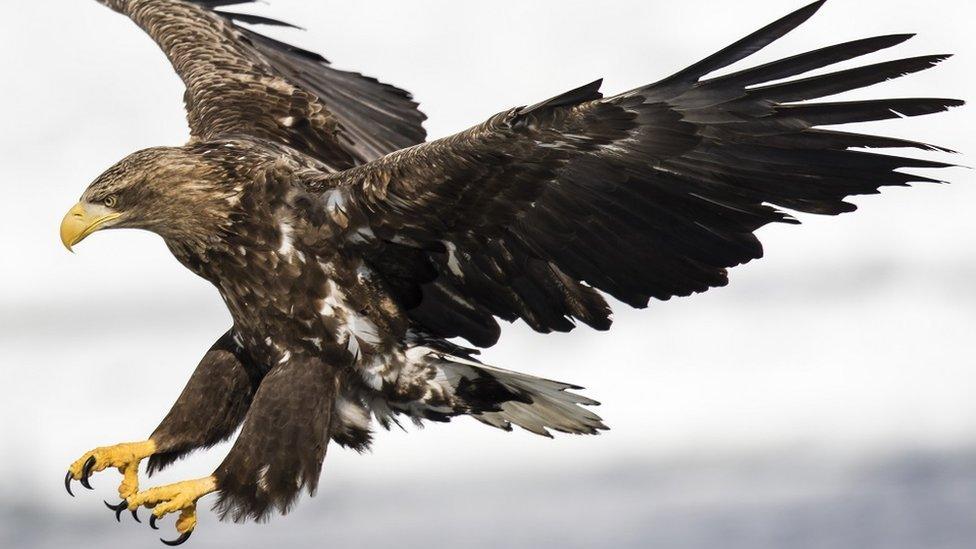No prosecutions after 89 birds of prey killed in NI

Threatened species including white-tailed eagles, hen harriers and red kites (one pictured) were among those targeted
- Published
No one in Northern Ireland has been prosecuted for illegally killing birds of prey, despite 89 confirmed incidents in the past 15 years.
The Royal Society for the Protection of Birds (RSPB)’s annual bird crime report has found 1,344 of the raptors have been illegally killed across the UK between 2009 and 2023.
Threatened species including white-tailed eagles, hen harriers and red kites were among those targeted.
The charity is reiterating its call for revised legislation in Northern Ireland to ban the pesticides often used in attacks on wildlife.
Raptors are protected by law, external in Northern Ireland.

In 2023 two young white-tailed eagles were found poisoned on a grouse moor in County Antrim
At least 64 birds have been killed in poisoning incidents which often involve bait deliberately laced with pesticides left in the countryside.
Some species have been reintroduced as part of conservation restoration efforts.
Red Kites were reintroduced in 2008 after they vanished from Northern Ireland two centuries ago.
One had to be euthanised in April 2024 after being shot in County Down and suffering injuries that could not be repaired.
The female bird is believed to be the 18th red kite killed since reintroduction.
In 2023, two young white-tailed eagles were found poisoned on a grouse moor in county Antrim.
'Blight on countryside'
The RSPB said the PSNI needed more resources to tackle wildlife crime.
Dean Jones from the charity said it was “a blight” on the countryside.
“Persecution of our birds of prey, particularly the poisoning of birds, is not only having population scale consequences on species, but also has serious health and safety implications for the people of Northern Ireland," he said.
“Currently, there is not enough being done to tackle this issue and wildlife crime as a whole.
“We must unite to demand greater resources for the PSNI, advocate for stronger legislation, and enhance partnerships.
“Only together can we put an end to this assault on our native wildlife."
Related topics
- Published17 May 2023

- Published7 July 2023
